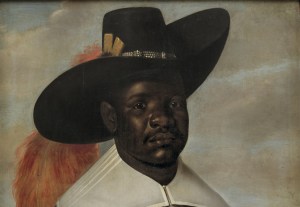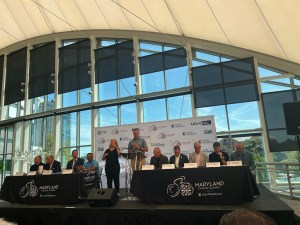By Nadine Matthews,
Special to the AFRO
“It was quite a long bidding process,” CEO Delali Dzirasa tells the the AFRO about his tech service company, Fearless’ efforts to be chosen to create a digital Searchable Museum for the National Museum of African American History and Culture (NMAAHC). The NMAAHC is the country’s first and only museum exclusively dedicated to documenting African-American history, culture and life. “It was almost three years in the making,” Dzirasa explained.
“We won about October of 2020, worked on it since, and just released it,” he stated. Dzirasa’s company Fearless, won the lucrative (one of many in the company’s 12-year history) contract to create the online vehicle to complement the in-person “Slavery and Freedom” exhibition. After finally winning the bid to do the project, it took more than a year to bring it to fruition.
The Searchable Museum is bursting with all the images and information you would find touring the physical museum itself, and aims to elicit the same kind of powerful emotional response that an in-person visit to the museum does. The website also provides learning opportunities through additional digital resources. The Slavery and Freedom exhibition, which the Searchable Museum website parallels, encompasses over 400 years of Black history, starting from 1400 through Reconstruction.
Much more than just a retread of the same history we learn in school, there is a plethora of not often talked about historical figures such as Queen Nzingha and her diplomat Dom Miguel de Castro who worked to resolve issues between Europe and Africa in the seventeenth century. There is also information on people like Don Francisco de Arobe, an African-descended eighteenth-century leader in Ecuador, or Rebecca Protten, a former slave and globetrotting missionary. It highlights the absolutely pivotal role of the Catholic church in paving the way to use race as a way of consigning Africans brought to the new world, to “perpetual servitude.”
Paintings and drawings of the period that more accurately depict the equal status of Africans and Europeans in the fifteenth and even the sixteenth centuries are also included.
There are all the things you would see in a physical museum; artifacts, sculpture, paintings, maps, explanatory text cards, many of them rarely seen even in textbooks. African-American history is presented comprehensively and with verity, agency, and dignity.
Dzirasa’s 12-year-old firm got off to a big start: running websites for areas of the U.S. Department of Defense. Our company builds “software with a soul,” stated Dzirasa, who started programming as a child under the guidance of his computer scientist father. “Our vision,” he stated, “Is to create a world where good software powers things that matter.”
Now in addition to the Searchable Museum, Fearless also runs websites for the Small Business Administration and websites for Medicare, among other top level government websites.
Dzirasa, a graduate of the University of Maryland Baltimore County (UMBC), was determined to do justice to the story of African Americans, with this project. “I remember I was like, ‘we’re gonna bring it, we’re gonna do this!’” Stated Dzirasa, “This project has meant the world to me, the world to our team.”
The project came on the heels of George Floyd’s murder, and during COVID, making its import that much larger. “All these things were happening in the world shedding so much light on racial justice conversations,” stated Dzirasa. “To be in a place to be able to bring forth this story and this narrative in this format for the world to view it, was huge.” “It meant so much,” Dzirasa recalls, his unprecedented reaction to learning his firm won the bid. “It was the first time I literally screamed when I found out I won a bid.”
Fearless worked closely with NMAAHC personnel in building the Searchable Museum website. “It was something that we really did together,” explained Dzirasa, “They were experts on the content, and so those pieces really had to come together in concert, in a very iterative fashion; working together, designing together and giving each other feedback. It was a great collaborative experience across the board.”
Despite the impressive depth and breadth of the project, the most significant thing is its accessibility. All one needs is a computer and an internet connection in order to explore. “The idea came about even before COVID,” explains Dzirasa. “Their idea early on was what if someone can’t get on a plane and come to D.C. to experience the museum? They still wanted people to be able to plug into what was going on there.”
As comprehensive as the site already is and as excited as Dzirasa is about it, it is not the end of the story Dzirasa shares. “This is still just the first version and we are going to continue to build on it.”
Help us Continue to tell OUR Story and join the AFRO family as a member – subscribers are now members! Join here!
The post Baltimore-based ‘Fearless’ creates searchable museum for NMAAHC appeared first on AFRO American Newspapers .











